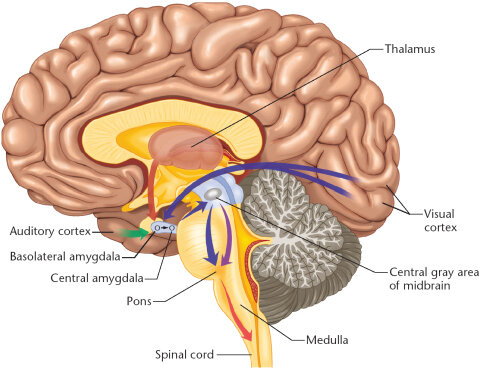Post Traumatic Stress Disorder
Post traumatic Stress Disorder
When working with clients, I offer them the information about Post traumatic Stress Disorder (PTSD) to connect bodily experiences with the information they 'know' as often, the bodily experiences such as severe attacks of anxiety, are not understood without context. A client may explain a non threatening situation when sharing how their panic and anxiety began and will sometimes experience sadness and anger at their inability to link the situation to the extent of their stress, flashbacks, startle responses and dissociative behaviours (when people disconnect from parts of their reality i.e. how they are feeling about something).
As Transactional Analysis (TA) links present difficulties to past experiences as a way to understand today’s behaviours, how they derived perhaps as a survival strategy as a child and how as an adult, we have the capacity to change the maladaptive strategies to provide autonomy, PTSD theory works on the same principle together with undeniable psychobiology.
In Babette Rothschild’s book ‘The Body Remembers’, she suggests that those who have experienced trauma hold implicit memory (memory that we store and retrieve unconsciously) of the events in the brain and body; these implicit memories which are often described as being experienced in the body as flashbacks, anxiety and more, support the theory that the body refuses to ignore the trauma.
The area of the brain that deals with traumatic hyperarousal is the Limbic System; this is situated in the centre of the brain between the brain stem and cerebral cortex and is responsible for regulating survival behaviours and emotion. The Limbic System influences memory processing though its primary task is survival; eating, sexual reproduction and the flight or fight instinct. The Limbic System has a very close relationship with our nervous systems, influencing their activation or suppression in preparation for stress and effort or rest and relaxation; it is the Limbic System that responds to extreme traumatic threat via the release of hormones that prepare the body to act in defence. Once the traumatic event subsides, and the flight or fight defence mechanism has been successful, the adrenal glands produce cortisol which induces internal stability. This is an overview of the psychobiological process with reference to trauma; PTSD derives as a consequence of the autonomic nervous system continuously being aroused, even though the threat has passed and the individual has survived. Research by Yehuda et al. (1990) has shown that the adrenal glands in those with PTSD do not release enough cortisol to halt the arousal caused by the threat; those with PTSD, in numerous studies, have been shown to have lower cortisol levels than control groups.
As I mentioned, the Limbic System is also involved in the processing of memory, the hippocampus and the amygdala are central to memory storage. The amygdala is known for aiding the processing of emotionally charged memories such as fear and terror and is highly active during the experience and remembering of such events whilst the hippocampus is responsible for giving a memory its place in our life’s time-line, thus providing a time and space context; a beginning, middle and an end. Nadel & Jacobs (1996), van der Kolk (1994), among others, have shown that the hippocampus, during traumatic events, becomes suppressed therefore limiting it’s availability for processing and storing such memories. This is relevant to PTSD as suffers often experience the trauma as though it has not passed, it has not yet been survived and therefore internally, are receiving constant hormonal arousal; the traumatic event has not taken it’s proper position in the individual’s history and is persistently invading the present.
I acknowledge that this is a brief over-view as my purpose was to offer some context to individual’s experience as I have heard clients often ask themselves why. Why are they not in control, why does it invade their lives at such inappropriate and non contextual times; I am hoping that by knowing some of the psychobiological processes that happen as a consequence of trauma, those who suffer will give themselves permission to feel, address and understand.
I could go on to discuss the consequences of PTSD and how these consequences can be managed though instead, if you would like to read further into this area, I would suggest Babette Rothschild’s book ‘The Body Remembers’ which I have used to write all of the above.
If you have any questions or concerns about your own experiences, or those of a loved one, and would perhaps like to discuss options, please get in touch and I will be happy to assist.
Reference:
Rothschild, B. (2000). The Body Remembers. New York: W. W. Norton & Company Inc.

